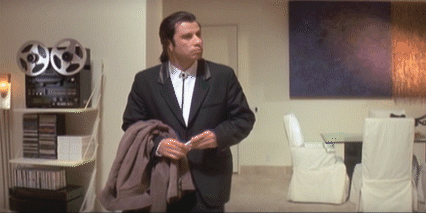"However, after a moment or two, the implied stage begins clearly to represent the world, and the actors, the world's population"; "On second thought, play metaphor—'all the world's a stage'—Life goes on in spite of quarreling, but it won't if the 'lighting' (moral? spiritual?) fails . . . Anyway, war, disagreement, etc., don't matter so much—so long as we still have the 'light' (sun—source of light—nature? God?)."
Later on in Rosenblatt's piece, she quotes a reader who claims the third line—"The only thing I worry about is the sun"—as a harbinger for the H-bomb. To me, though it may be a product of my own biased response as a reader, those explanations near the same uncontrolled and unkempt territory of that WWII interpretation of "The Ball Poem", read by Tim in a show of masterful elocution.
Looking for Alex's point like
Source: http://i.imgur.com/7PhLQGY.gif
("Ultimate" seemed the best word to illustrate that strange amalgamation of a response that is at once expansive, global, consequential, grand, etc.)
Obviously there is no achievable answer that is 100% right or 100% wrong in a reader's critical response, but it seems that at least in an academic environment—the study that Rosenblatt cites, the now-infamous "The Ball Poem" response, or even my own response to the Frost quatrain—we readers seek to over-perform. Question #2: WHY???

No comments:
Post a Comment